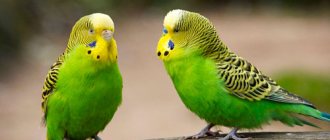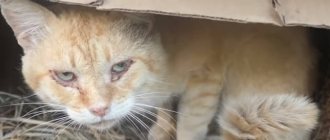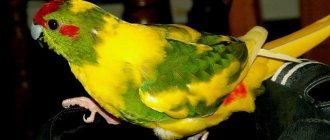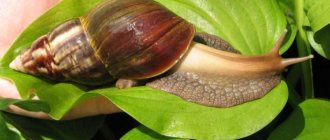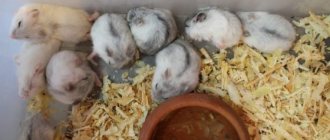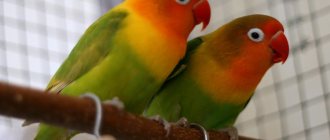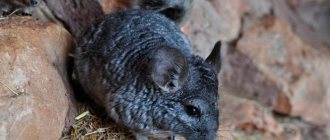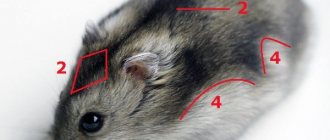Conditions
When choosing a bird to keep at home, you need to know that small breed parrots live much shorter than their larger counterparts. Lovebirds have become a common breed for home keeping.
Often the owner of a parrot is concerned about how long lovebirds live at home. The lifespan of this small bright bird largely depends on the conditions of its keeping:
- Proper balanced food.
- Spacious cage adapted to all the needs of the bird.
- Compliance with temperature and lighting conditions.
An important factor influencing the life expectancy of birds is company for the bird. A lovebird requires a pair for proper development and a long active life.
How long do lovebirds live at home?
They love to keep these birds for their bright, attractive colors and unpretentiousness of keeping. There are no special problems in feeding and caring for them.
In captivity, a bird does not have to fight for survival, overcoming drought, starving in search of food and escaping from predators and enemies. Therefore, at home, he can live twice as long as in the wild - on average 15 years, maximum 20. There is, however, unconfirmed data about a centenarian who lived up to 32 years.
There are several rules, the observance of which will determine how long your lovebirds will live.
Legend of the Birds
These birds were brought from Madagascar. The colorful, beautiful plumage did not leave people indifferent. Bright parrots are a favorite species among breeders of ornamental poultry.
There is a belief that if one of the lovebirds dies, then the other one will not be able to live without a partner. This attracted attention to this species. In practice, it turned out that proper care and attention can save the surviving bird. After a while, you can add another individual to the cage and not have to wonder how many years lovebirds live in captivity.
Life expectancy in the natural environment
The main habitat of lovebirds in the wild is African countries and Madagascar. They prefer low trees and settle near fresh water bodies. Ornithologists have found that the average life expectancy of a parrot in natural conditions is about 10 years. But not every individual survives to this age, as they are exposed to many dangers:
- predator attacks;
- extermination by farmers;
- diseases;
- drought;
- other climate changes.
Content
The lovebird is an unpretentious bird. Her lifespan is determined by a few simple rules. How long a lovebird lives depends on their observance:
- It is necessary to choose a place for the cage. She shouldn't be near the window. Drafts should not be allowed - all birds are afraid of them. It is also prohibited to place the cage near heating appliances.
- The bird house is placed in a well-lit place, but the bird should not be exposed to direct sunlight. In winter, the lack of sunlight is compensated by artificial lighting.
- It is good to place the cage in a place so that the bird has a large view. Lovebirds love company, so they should always be in the center of events. A blind closed corner is not suitable for placing a bird house. You need to choose a place at the level of the owner’s face - this will make it easier to communicate with the pet.
Communication has a beneficial effect on lovebirds at home: the microclimate in the family determines how many years it will live.
Cage dimensions
The first thing you need to take care of is a fairly spacious and comfortable cage, the length of which (per individual) is from 60 cm, the width is from 30 cm, and the height is from 40 cm, but it is better to exceed the minimum dimensions.
If the cage is too small, this can lead to obesity and injury to your pet. Among other things, the bird may begin to feel sad, which will immediately affect its health.
The cleanliness of the bird's home is also extremely important. The cage must be cleaned at least once a week. Sanitary conditions also determine how long lovebirds live in captivity.
The birdcage must be made of safe materials that do not contain zinc, copper and lead. The rods on the walls must be frequent in order to prevent paws, heads and other parts of the bird’s body from sticking through and getting stuck in them. The cage door must always be kept closed to prevent the bird from escaping from its shelter when left unattended by humans.
In order for the pet to lead an active lifestyle, some useful little things must be placed inside the bird’s home, namely: feeders, several perches at different heights, drinking bowls, and a bird bath. In addition, ropes, swings, ladders, mirrors (if there is only one parrot) are needed. Rings, various toys and branches will also come in handy.
Choosing a house
For the correct development of the parrot and its active life, it is necessary to choose a spacious cage. The best option would be a regular square or rectangular-shaped dwelling in which the bird can make several flaps of its wings. The retractable bottom makes cleaning the cage easier.
In addition to the feeder and drinking bowl, the house must have a bath: lovebirds love to splash around. In hot weather, you can freshen the bird with a spray bottle. It is also necessary to equip the cage with crossbars, hanging swings, and toys. All equipment must be periodically disinfected. Maintaining good hygiene for a lovebird determines how many years it will live.
Factors influencing life expectancy
To help your pet live safely into old age and find out from your own experience how many years a lovebird parrot lives in captivity, you need to properly care for it. To do this, it will be enough to provide the bird with adequate living conditions.
Spacious cage
One lovebird needs a cage with a length of 60 cm, a width of 30, and a height of 40 cm. A cramped space is fraught with injury and obesity, besides, in a small cage the bird will be sad and how long it will last is unknown. If you plan to keep a pair of birds, then you need to choose a home for them that is even more spacious so that the family lives in comfortable conditions. It is recommended to clean the cage of dirt at least once a week.
Important! The cage must be made of safe materials, without copper, zinc, or lead. Make sure the bars are wide enough so that the parrot cannot stick his head between them and get stuck. The door must be closed carefully, otherwise the bird will open the bolt and may die without supervision.
In the interior decoration of the home, you need to provide various little things for the active lifestyle of lovebirds:
- perches;
- feeders;
- drinking bowls;
- bathing container;
- mirrors;
- ropes, ladders, swings;
- rings, twigs, toys.
Proper nutrition
How many times a day and what to feed the birds? Lovebirds have a fast metabolism and eat little but often. Food for parrots should be balanced and varied: grains, fruits, soft foods (soaked white bread and boiled eggs). You should add vitamins and minerals to your pets’ menu every day. The quality and life expectancy of lovebirds depends on good nutrition. It is important to place the feeder and drinker in different corners of the cage so that water does not get into the food. Water and food containers should be washed every day and whenever they become dirty.
Microclimate
To approximate the microclimate parameters that are comfortable for small birds, you need to take care of the absence of drafts and maintain an air temperature in the apartment of 20-25 ° C and a relative humidity of 60%. Too low indicators can lead to colds and poor health, stress, and the lovebird will not be able to live in depression: it will begin to pluck its feathers. This bad habit will ultimately lead to death.
We recommend reading: African rosy-cheeked lovebird
Nutrition in captivity
This type of bird is suitable for breeding for beginners because it does not require special care. Eats any homemade or factory-made food.
Important! Store-bought grain mixtures for small breeds of parrots should absolutely not be offered to lovebirds.
Special food is produced for medium breed parrots. It must be sifted before use. However, ready-made grain mixtures do not provide all the necessary substances; additional feeding is needed in the form of vegetables, fruits and sprouted greens. Greens in the form of dandelions or spinach are regularly given. The regularity of vitamin intake by lovebirds determines how long they will live.
The daily food intake is 3 tablespoons. Overeating of the bird should not be allowed. This amount should include a teaspoon of low-fat cottage cheese or boiled chicken egg. These products are mixed with wet mixtures.
Prohibited Products
The nutrition of lovebirds should be approached responsibly. In addition to the ready-made grain mixture, your pet should be treated to fruits, vegetables and protein foods. There are a number of products that are beneficial for humans, but are contraindicated for parrots. They can cause poisoning and even lead to the death of the bird.
Almond
Lovebirds should not be given almonds, as this nut is too fatty for them. Its consumption may cause digestive problems. In addition, it contains hydrocyanic acid, which causes poisoning and can lead to the death of your pet.
Avocado
This fruit is toxic to lovebirds. It contains persin, which causes cardiac arrest in birds.
Persimmon
The elements found in persimmons negatively affect the health of parrots. These include essential oils and tannins.
Potato
Potato tubers contain components that are dangerous to the health of birds - solanine and chaconine. In addition, there is a large amount of starch, which is contraindicated for lovebirds. Therefore, it is better to exclude this vegetable from the diet.
Salty food
Parrots should not be given food from the human table. Salt accumulates very quickly in the bird’s body and is difficult to eliminate. This may lead to poisoning.
Mango
This fruit is contraindicated for lovebirds, as it is brought from exotic countries. The ripe fruit cannot be transported, so suppliers pick it “green” from the trees. Unripe mangoes contain milky juice, which is dangerous for your pet.
Pistachios
These nuts are very high in calories, so they can cause obesity in a parrot. Also, substances contained in pistachios irritate the bird’s intestines and cause digestive problems.
Fruits in sugar syrup
Dried fruits contain a huge amount of pesticides and preservatives, which are prohibited for lovebirds. Large amounts of sugar can cause obesity or gastrointestinal problems. There are almost no useful substances in these fruits, so it is better to treat the bird with an apple or banana than such a high-calorie product.
Alone or in pairs
It is rare for lovebirds to live for a long time at home without a mate; how long is determined by the conditions of detention. Young individuals make contact well. It is difficult to tame an adult bird, especially if it is a solitary parrot. It’s good to feed the chick yourself, then it will be happy to communicate with its owner. Constant interaction is the key to a pet’s long life.
To tame a bird, it is better to buy a pair. This way the bird will settle in better and won’t get bored in its new place. The couple will please the owner for a long time. In this case, you don’t have to wonder how long lovebirds live at home.
These birds are freedom-loving birds. It is advisable to open the cage more often; parrots practically do not live in it. In their house they only eat and while away the nights. The rest of the time, the birds move around the room, exploring the space. If there is no desire to release parrots, a large aviary is needed.
In a room with birds there should be no bright wallpaper or colorful designs. This has a negative impact on the mental health of the birds. It is better, if possible, to decorate the room in pastel, soothing colors.
Important! Smoking is strictly prohibited in a room with birds. Tobacco smoke is toxic to her. The presence of toxic substances in the lovebird's habitat has a detrimental effect on how long it lives.
It is good to provide regular water treatments. This greatly tones up the parrots and allows them to look cheerful and neat.
